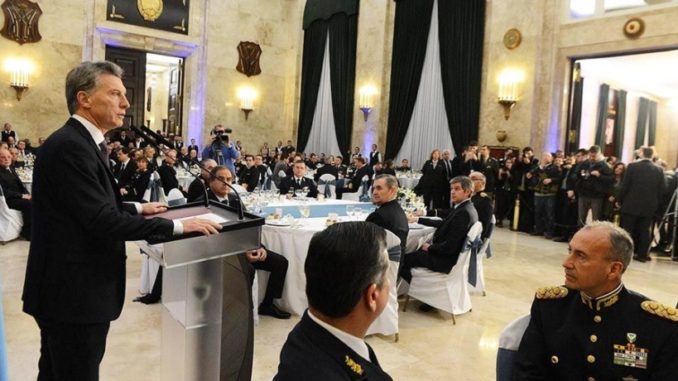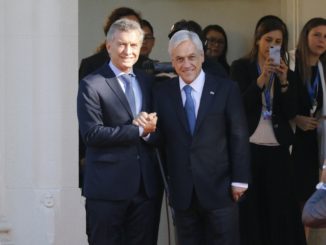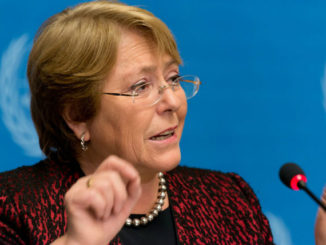
BUENOS AIRES – In an effort to fix a persistent deterioration of relations, President Mauricio Macri has ordered a 20% rise in the salaries of the Argentina’s armed forces.
It was a political decision against the fiscal austerity measures that the government promised the International Monetary Fund (IMF) to deserve a financial rescue of 50,000 million dollars, but necessary to calm what already threatened to become a serious storm.
Two weeks ago, the government ordered a wage increase of only 8% for the lowest military positions and fixed sums for the highest, in an inflationary context that could reach 30% in 2018. The repudiation among the uniformed was such that the military parade on Independence Day, July 9, had to be suspended.
The President announced the decision to raise the salary of the Armed Forces to the Minister of Defense, Oscar Aguad, during a meeting held at the official residence of Olivos. 20% does not recover the loss due to inflation, expected to reach 29,6% this year, but at least it resolves part of the abysmal gap that today separates the salaries of the military with the members of the security forces, such as Police, Naval Prefecture and Gendarmerie.
The basic matter that proceeds the background of the issue far exceeds the salary question. The Armed Forces do not have a clear role today in Argentina, a burden that they carry since the return to democracy, in 1983.
During the Kirchner era, a presidential decree prohibited the Army, the Air Force and the Navy from participating in any event that did not involve the attack of a foreign State. While the Armed Forces became smaller, the rest of the security forces grew, both in budget and in personnel and equipment.
The Forces today have about 40 thousand men, less than half that when they surrendered power in 1983. Last month, during a speech for the day of the Army, Macri promised a total reconversion of the Armed Forces, which aims to professionalize the uniformed and modernize the armament, while reducing costs. The salary demand in the barracks coincided with the lack of definition of these promises, a debt that Macri has now tried to settle with a rise above what was expected.–MercoPress



